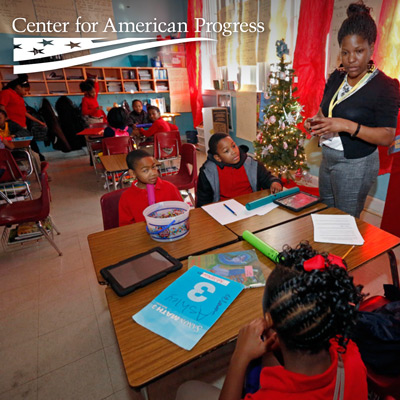 Wide racial gaps in educational attainment, income, and wealth linger in American society. A new study from the Center for American Progress shows how closing these gaps would have a huge positive impact on the American economy.
Wide racial gaps in educational attainment, income, and wealth linger in American society. A new study from the Center for American Progress shows how closing these gaps would have a huge positive impact on the American economy.
The report founds that if educational gaps were closed and incomes rose to coincide with the educational gains, the gross domestic product would grow by $2.3 trillion by the year 2050. Federal, state, and local tax revenues would grow significantly due to the rise in incomes and contributions to the Social Security fund would rise by $877 billion by the year 2050.
The authors note that public expenditures earmarked toward closing the racial gap in educational attainment would more than pay for themselves in terms of increased economic output and tax revenues.
The study, The Economic Benefits of Closing Educational Achievement Gaps: Promoting Growth and Strengthening the Nation by Improving the Educational Outcomes of Children of Color, was authored by Robert G. Lynch and Patrick Oakford. It may be downloaded by clicking here.







